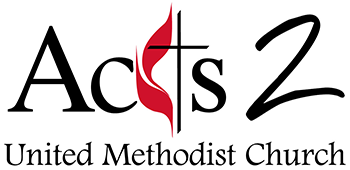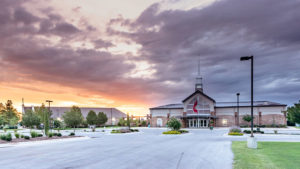By Rev. Andy Nelms
The morning our son, Elijah, was to be born, Melissa and I went to eat breakfast at IHOP. We were scheduled to induce labor at Lakeside Women’s Health Hospital early that morning so we rose even earlier to sneak in a hearty breakfast before the induction. It was a strange and eerie meal. We had a booth near the window and watched the sunrise and the steady stream of cars increase on the highway. We listened to the familiar conversations between the regulars and the wait staff. Everything around us was normal, everyday, typical, but we were about to do something that would change our lives forever.
Before Jesus was crucified, he entered into Jerusalem for the last time. Jesus and his disciples had been to Jerusalem many times before. They probably had been every year for the high holy day of Passover. Yet despite the everydayness of the journey—despite the familiar vendors they would pass on the way, the usual scenery, the unmistakable faces—this journey was different. Unlike the arrivals in the past, Jesus’ entry this time was what we call a “triumphal entry.” As Jesus rode in on his donkey others were shouting, “Hosanna, Hosanna, Hosanna in the highest!” Others laid down their coats or palm branches on the ground so the donkey’s hooves wouldn’t have to tread on the dirt. This journey was unlike all the rest. Why?
Jesus was not the only person entering Jerusalem. In fact, around the time Jesus was riding into the city, there were big parades happening on the other side of the ancient city. One of the parades was for Herod. Herod was the tetrarch charged by the Roman government with keeping peace in Jerusalem. The way he chose to do this was by building a fortress that was connected to the Temple so he could see all the comings and goings of the popular location. Everyone was intimately aware that Herod’s eye was always on them especially when they were bringing their sacrifices to God.
Another parade was held for Pontius Pilate. Pilate was the Roman prefect over the entire province of Judea. Pilate’s primary role was collecting the taxes on Rome’s behalf. Pilate’s entry into Jerusalem was to be praised as if Caesar himself were entering the Holy City. It was big. People praised and celebrated in the hopes that the report back to their emperor would be pleasing and satisfactory.
This is the scene into which Jesus entered Jerusalem, humbly riding on a donkey. Even though the scenes around Jesus were normal, Jesus was about to do something that would change the world forever. Soon, Jesus would share in a final meal with his disciples and would be crucified not for his sins, but for those of the world.
Palm Sunday is a day we celebrate the humble entry of Jesus into Jerusalem. We celebrate that even though Jesus subtly entered the Holy City his welcome was anything but. As our Savior rode his donkey and passively entered Jerusalem, his welcome was one that rivaled that of the highest-ranking officials.
I’m looking forward to worshipping with you this weekend and celebrating the entry of Jesus into Jerusalem. Our Palm Sunday services will be held at One Church on Friday at 6:30 p.m. in the Chapel and Sunday at 9:15 and 10:45 a.m. in the Sanctuary.


